import os
import clip
import numpy as np
from PIL import Image
from tqdm import tqdm
from typing import List, Dict
import concurrent.futures
import pickle
import time
def tokenize_text(text: List[str], tokenizer):
"""
Tokenize the input text using the CLIP tokenizer.
Parameters:
text (List[str]): List of input texts to be tokenized.
tokenizer (clip.simple_tokenizer.SimpleTokenizer): The CLIP tokenizer.
Returns:
List of tokenized texts.
"""
return [tokenizer.encode(t) for t in text]
def cosine_similarity(a, b):
"""
Calculate the cosine similarity between two vectors.
Parameters:
a (numpy.ndarray): The first vector.
b (numpy.ndarray): The second vector.
Returns:
float: The cosine similarity between the two vectors.
"""
return np.dot(a, b) / (np.linalg.norm(a) * np.linalg.norm(b))
def process_image(image_path, entity, tokenizer, preprocess, model):
"""
Process a single image and calculate the similarity score with a given entity.
Parameters:
image_path (str): The file path of the image to be processed.
entity (str): The entity to compare the image with.
tokenizer (clip.simple_tokenizer.SimpleTokenizer): The CLIP tokenizer.
preprocess (Callable): Image preprocessing function from the CLIP model.
model (clip.model.CLIP): The CLIP model.
Returns:
Tuple: The image path and the similarity score between the image and entity.
"""
with Image.open(image_path) as image:
text = tokenize_text([entity], tokenizer)
image_input = preprocess(image).unsqueeze(0)
image_features = model.encode_image(image_input).detach().numpy()
text_features = model.encode_text(text).detach().numpy()
similarity = cosine_similarity(image_features, text_features)
return image_path, similarity
def compute_embeddings(all_images_folder, model, tokenizer, preprocess):
"""
Pre-compute embeddings for all images and cache them for faster retrieval.
Parameters:
all_images_folder (str): The folder containing all images.
model (clip.model.CLIP): The CLIP model.
tokenizer (clip.simple_tokenizer.SimpleTokenizer): The CLIP tokenizer.
preprocess (Callable): Image preprocessing function from the CLIP model.
"""
image_files = [file for file in os.listdir(all_images_folder) if file.endswith(".jpg")]
embeddings = {}
for image_file in tqdm(image_files, desc="Computing Embeddings"):
image_path = os.path.join(all_images_folder, image_file)
with Image.open(image_path) as image:
image_input = preprocess(image).unsqueeze(0)
image_features = model.encode_image(image_input).detach().numpy()
embeddings[image_file] = image_features
with open('embeddings_cache.pkl', 'wb') as f:
pickle.dump(embeddings, f)
def find_closest_matches(tagged_images_folder: str, all_images_folder: str):
"""
Find the top 3 similar images for each entity and save them in respective folders.
Parameters:
tagged_images_folder (str): The folder containing tagged images for each entity.
all_images_folder (str): The folder containing all images.
Notes:
This function uses the CLIP model for image and text embeddings and the cosine similarity metric
to find the top 3 most similar images for each entity.
"""
model, preprocess = clip.load("ViT-B/32", jit=False)
tokenizer = clip.simple_tokenizer.SimpleTokenizer()
# Check if embeddings are cached
if os.path.exists('embeddings_cache.pkl'):
with open('embeddings_cache.pkl', 'rb') as f:
embeddings = pickle.load(f)
else:
compute_embeddings(all_images_folder, model, tokenizer, preprocess)
with open('embeddings_cache.pkl', 'rb') as f:
embeddings = pickle.load(f)
entity_folders = [folder for folder in os.listdir(tagged_images_folder) if os.path.isdir(os.path.join(tagged_images_folder, folder))]
for entity_folder in entity_folders:
entity_images_folder = os.path.join(tagged_images_folder, entity_folder)
entity_cropped_folder = os.path.join(all_images_folder, "results", entity_folder)
os.makedirs(entity_cropped_folder, exist_ok=True)
image_files = [file for file in os.listdir(entity_images_folder) if file.endswith((".jpg",".jpeg",".png"))]
# Initialize a dictionary to store similarity scores for each entity
entity_similarities = {}
# Process images and calculate similarity for each entity
with concurrent.futures.ProcessPoolExecutor() as executor:
future_to_path = {executor.submit(process_image, os.path.join(entity_images_folder, file), os.path.splitext(file)[0], tokenizer, preprocess, model): file for file in image_files}
for future in tqdm(concurrent.futures.as_completed(future_to_path), total=len(future_to_path), desc=f"Processing {entity_folder}"):
img_path, similarity = future.result()
entity = os.path.splitext(os.path.basename(img_path))[0]
# Add similarity score to the dictionary
if entity not in entity_similarities:
entity_similarities[entity] = []
entity_similarities[entity].append((img_path, similarity))
# Save the top 3 similar images for each entity in its respective folder
for entity, similarities in entity_similarities.items():
# Sort similarities for the current entity
similarities.sort(key=lambda x: x[1], reverse=True)
# Create a folder for the current entity if it doesn't exist
entity_output_folder = os.path.join(entity_cropped_folder, entity)
os.makedirs(entity_output_folder, exist_ok=True)
# Save the main image in the entity folder
main_image_path = os.path.join(entity_output_folder, "main_image.jpg")
main_image = Image.open(similarities[0][0])
main_image.save(main_image_path)
# Create a subfolder for similar images
similar_images_folder = os.path.join(entity_output_folder, "similar_images")
os.makedirs(similar_images_folder, exist_ok=True)
# Save the top 3 similar images (cropped out) in the similar_images subfolder
for i, (img_path, _) in enumerate(similarities[:3]):
similar_img = Image.open(img_path)
similar_img.save(os.path.join(similar_images_folder, f"top{i+1}-{os.path.basename(img_path)}"))
if __name__ == "__main__":
tagged_images_folder = r"c:\Users\amrit\Aryan\CS\python\Adobe hack-a-thon\Round 2 prep\Aithon\adobe_aithon_alpha\question1\All_Images"
all_images_folder = r"c:\Users\amrit\Aryan\CS\python\Adobe hack-a-thon\Round 2 prep\Aithon\adobe_aithon_alpha\question1\boxed_images"
start_time = time.time()
find_closest_matches(tagged_images_folder, all_images_folder)
end_time = time.time()
total_time = end_time - start_time
print(f"Total time taken: {total_time:.2f} seconds")
The code should be outputing images with this file structure
boxed_images/results/entity_folder/main_image.jpg and boxed_images/results/entity_folder/similar_images/topX-image_name.jpg for each entity.
I am trying to optimize the code and make it fast but as of now I just want the code to work
These are the two images from where i got the questions

